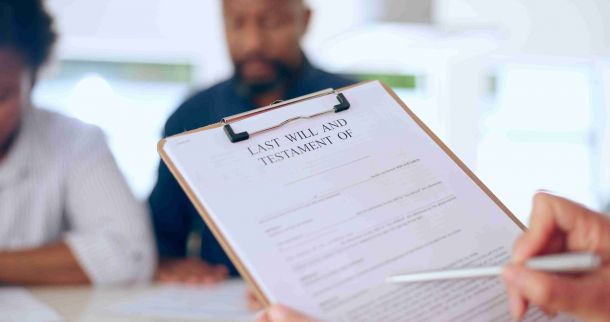Estate Retirement Planning: Tips for a Secure Future
Are you looking to secure your future through estate retirement planning? We’ve got you covered!
In this blog, we’ll share valuable tips and advice to help you navigate the world of retirement planning.
By starting early, assessing your finances, setting realistic goals, and creating a comprehensive estate plan, you can ensure a secure future for yourself and your loved ones.
Remember to regularly review and update your plan to stay on track toward a worry-free retirement.
Table of Contents
ToggleKey Summary
- Starting early in estate retirement planning maximizes growth potential and allows for more time to save and invest.
- Assessing your current financial situation is crucial for effective retirement planning and helps make informed decisions.
- Setting realistic retirement goals ensures a secure future and considers factors like lifestyle, healthcare costs, and inflation.
- Creating a comprehensive estate plan protects and distributes assets according to wishes and helps avoid family disputes.
Start Planning Early
When should we begin our estate retirement planning to ensure a secure future?
Planning for retirement can be a daunting task, but starting early is crucial. By beginning our estate retirement planning as soon as possible, we give ourselves the best chance for a secure and comfortable future. The earlier we start, the more time we’ve to save and invest, allowing our money to grow over time.
Starting early allows us to take advantage of compound interest, which can significantly boost our savings. We can also carefully consider our financial goals and make adjustments along the way.
Planning early ensures that we’ve a solid foundation and ample time to make any necessary adjustments to our retirement strategy. So, let’s start now and take control of our future!
Assess Your Current Financial Situation
To evaluate our current financial situation, we need to analyze our assets, liabilities, and income. This step is crucial for effective retirement planning. By understanding our financial standing, we can make informed decisions and take necessary actions to secure our future.
Now let’s assess our assets, which include savings, investments, and properties. Knowing the value of these assets will give us an idea of our financial strength.
Next, we must consider our liabilities, such as mortgages, loans, and credit card debt. This helps us understand our financial obligations and plan accordingly.
Lastly, let’s evaluate our income, including salaries, pensions, and any other sources.
Set Realistic Retirement Goals
As we assess our current financial situation, it’s important to set realistic retirement goals. Planning for retirement can be overwhelming, but by setting attainable goals, we can ensure a secure future. It’s crucial to consider factors such as our desired lifestyle, healthcare costs, and inflation when determining our retirement goals.
We need to evaluate our current expenses and estimate how they might change in retirement. This will help us determine how much we need to save and how long our funds will last. We should also consider any pension or social security benefits we may receive.
We should take into account our risk tolerance and investment strategies. Allocating our assets wisely and diversifying our portfolio can help minimize potential losses and maximize returns.
It’s essential to regularly review and adjust our retirement goals as our circumstances change. Life is unpredictable, and by regularly reassessing our goals, we can ensure we stay on track towards a secure retirement.
Create a Comprehensive Estate Plan
Once we’ve set realistic retirement goals, it’s important to create a comprehensive estate plan. This plan will ensure that our assets are protected and distributed according to our wishes after we pass away. Here are three key reasons why creating a comprehensive estate plan is crucial:
- Protecting our loved ones: By having a clear estate plan in place, we can ensure that our loved ones are taken care of financially. This includes designating beneficiaries for our assets, setting up trusts, and establishing guardianship for minor children, if applicable.
- Minimizing taxes and expenses: A well-crafted estate plan can help minimize the taxes and expenses associated with transferring our assets to our heirs. By utilizing strategies such as gifting, trusts, and charitable contributions, we can potentially reduce the burden of taxes and fees.
- Avoiding family disputes: By clearly outlining our intentions and wishes in our estate plan, we can help prevent potential conflicts among family members. This can provide peace of mind knowing that our assets will be distributed as we intended, minimizing the chance of disputes or legal battles.
Creating a comprehensive estate plan is a proactive step towards securing a stable and comfortable future for ourselves and our loved ones.
Regularly Review and Update Your Plan
We should regularly review and update our estate plan to ensure that it remains aligned with our current circumstances and wishes. Life is constantly changing, and our estate plan should reflect those changes. By conducting regular reviews, we can ensure that our plan continues to protect our assets and provide for our loved ones in the way we desire.
It’s important to consider major life events such as marriage, divorce, the birth of children, or the death of a beneficiary. Additionally, changes in tax laws or financial circumstances may warrant updates to our plan.
Disclaimer: This material is intended for general information purposes only and does not constitute legal advice. Responses to inquiries, whether by email, telephone, or other means, do not constitute legal advice, nor do they create or imply the existence of an attorney-client relationship.

Matthew Reinaker grew up in Lancaster, Pennsylvania and moved to Virginia after high school to attend the University of Richmond. There, he received his undergraduate degree, Juris Doctor, and Master of Business Administration. In law school, Matt held the Executive Editor role for the Journal of Law & Technology, served as a justice on the Honor Council, and interned at the US Attorney’s Office. Matt also had the rare and fortunate opportunity to serve as a caretaker for and live in the Bottomley House, a beautiful on-campus bed and breakfast.
After law school, Matt worked for Williams Mullen before serving as Chief Operating Officer for Restoration Builders of Virginia, a Richmond home renovation company. Combining his passion for law and business operations, Matt formed Asurest, a mobile law firm dedicated to improving the process of estate planning and serving client needs in the comfort of their own homes.
Asurest Locations
Richmond, VA
Location
6610 Monument Avenue
Richmond, VA 23226
Phone
Hours
Mon-Fri 8am–8pm
Sat & Sun Closed




